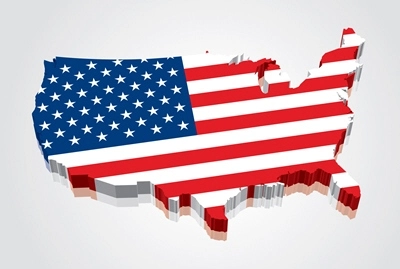Introduction
Impotence, clinically known as erectile dysfunction (ED), is a prevalent condition affecting millions of American men. Despite its commonality, the stigma associated with impotence can significantly impact the psychological well-being and help-seeking behaviors of those affected. This article delves into a qualitative study that explores the cultural attitudes toward impotence among American males, focusing on the stigma and help-seeking behaviors across different ethnic groups. Understanding these dynamics is crucial for healthcare providers to offer culturally sensitive care and support to men struggling with this condition.
Cultural Perceptions of Impotence
Impotence is often shrouded in cultural taboos and misconceptions, which can vary widely among different ethnic groups in the United States. For many American men, impotence is not merely a medical issue but a challenge to their masculinity and self-worth. The study found that among African American men, there is a strong association between impotence and perceived weakness, which can deter them from seeking help. Similarly, Hispanic men often view impotence as a personal failure, influenced by cultural expectations of machismo.
In contrast, Asian American men may experience impotence as a source of shame due to cultural norms that emphasize family honor and reputation. White American men, on the other hand, may be more likely to discuss impotence openly, yet still face significant stigma, particularly in more conservative communities. These cultural perceptions highlight the need for tailored approaches in addressing impotence across different ethnic groups.
Stigma and Its Impact on Help-Seeking Behaviors
The stigma surrounding impotence can profoundly affect a man's willingness to seek medical help. The study revealed that fear of judgment and embarrassment are common barriers to seeking treatment across all ethnic groups. For instance, African American and Hispanic men reported a reluctance to discuss impotence with healthcare providers due to concerns about confidentiality and the fear of being perceived as less masculine.
Asian American men often delay seeking help due to the cultural stigma associated with discussing sexual health issues, which can exacerbate the condition and lead to further psychological distress. White American men, while more likely to seek help, still face challenges in overcoming the stigma, particularly in communities where traditional gender roles are strongly upheld.
Strategies to Overcome Stigma and Encourage Help-Seeking
To address the stigma associated with impotence and encourage help-seeking behaviors, healthcare providers must adopt culturally sensitive approaches. The study suggests that education and awareness campaigns tailored to specific ethnic groups can help demystify impotence and reduce associated stigma. For example, community-based programs that engage African American and Hispanic men in discussions about sexual health can foster a more open dialogue and encourage them to seek treatment.
For Asian American men, providing resources in multiple languages and ensuring confidentiality can help alleviate concerns about discussing impotence. In white American communities, integrating sexual health education into broader health initiatives can normalize conversations about impotence and promote early intervention.
Conclusion
Impotence remains a challenging condition for many American men, compounded by cultural stigma and varying help-seeking behaviors across different ethnic groups. By understanding these cultural dynamics, healthcare providers can develop more effective strategies to support men in overcoming the stigma associated with impotence. Through education, awareness, and culturally sensitive care, we can empower American men to seek the help they need and improve their overall quality of life.
Contact Us For A Fast And Professional Response

- 0001) Innovative Therapies and Tech Transforming Impotence Treatment in America [Last Updated On: January 19th, 2026] [Originally Added On: February 18th, 2025]
- 0002) The Unspoken Truth: Confronting the Taboo of Male Impotence [Last Updated On: February 25th, 2025] [Originally Added On: February 25th, 2025]
- 0003) Unveiling Strength in Weakness: A Voyage Beyond the Bounds of Impotence [Last Updated On: February 26th, 2025] [Originally Added On: February 26th, 2025]
- 0004) Uncovering the Silent Battle: The Secret Challenges of Impotence [Last Updated On: February 27th, 2025] [Originally Added On: February 27th, 2025]
- 0005) Decoding Impotence: A Scientific Perspective on Desire [Last Updated On: February 28th, 2025] [Originally Added On: February 28th, 2025]
- 0006) Reframing Masculinity: Exploring Life Beyond the Bounds of Impotence [Last Updated On: February 28th, 2025] [Originally Added On: February 28th, 2025]
- 0007) Debunking the Illusions: Dissecting Factual Realities from Myths Surrounding Impotence [Last Updated On: March 1st, 2025] [Originally Added On: March 1st, 2025]
- 0008) When Passion Pauses: Unraveling the Psychological Impact of Erectile Dysfunction [Last Updated On: March 2nd, 2025] [Originally Added On: March 2nd, 2025]
- 0009) Comprehensive Overview of Erectile Dysfunction: Understanding Causes, Impacts, and Treatment Options [Last Updated On: March 3rd, 2025] [Originally Added On: March 3rd, 2025]
- 0010) Linking Erectile Dysfunction and Cardiovascular Health in Men [Last Updated On: March 4th, 2025] [Originally Added On: March 4th, 2025]
- 0011) Understanding Testosterone's Role in Male Sexual Health and Erectile Dysfunction Management [Last Updated On: March 5th, 2025] [Originally Added On: March 5th, 2025]
- 0012) Exploring the Link Between Stress, Anxiety, and Male Impotence: Strategies for Effective Management [Last Updated On: March 6th, 2025] [Originally Added On: March 6th, 2025]
- 0013) Navigating Erectile Dysfunction: Communication Strategies for Strengthening Relationships and Intimacy [Last Updated On: March 7th, 2025] [Originally Added On: March 7th, 2025]
- 0014) Revolutionizing Impotence Treatment: A Deep Dive into Alternative Therapies for American Men [Last Updated On: March 7th, 2025] [Originally Added On: March 7th, 2025]
- 0015) Understanding Male Impotence: Causes, Treatments, and Success Stories for Recovery [Last Updated On: March 8th, 2025] [Originally Added On: March 8th, 2025]
- 0016) The Broader Impacts of Impotence: Navigating Relationship Challenges with Comprehensive Support [Last Updated On: March 9th, 2025] [Originally Added On: March 9th, 2025]
- 0017) Revolutionizing Male Health: Advanced Therapies for Treating Impotence [Last Updated On: March 11th, 2025] [Originally Added On: March 11th, 2025]
- 0018) Unraveling the Complexities of Impotence: A Comprehensive Guide for American Men [Last Updated On: March 12th, 2025] [Originally Added On: March 12th, 2025]
- 0019) Revolutionizing Male Health: A Comprehensive Guide to Overcoming Impotence Through Lifestyle Changes [Last Updated On: March 13th, 2025] [Originally Added On: March 13th, 2025]
- 0020) Navigating Emotional Recovery: The Impact of Counseling on Impotence in American Men [Last Updated On: March 15th, 2025] [Originally Added On: March 15th, 2025]
- 0021) Impotence in American Males: Understanding Impact and Rebuilding Romance [Last Updated On: March 16th, 2025] [Originally Added On: March 16th, 2025]
- 0022) Telemedicine Revolutionizes Impotence Care for American Men: A Comprehensive Overview [Last Updated On: March 18th, 2025] [Originally Added On: March 18th, 2025]
- 0023) Medication-Induced Impotence: Causes, Impacts, and Treatment Options for American Males [Last Updated On: March 19th, 2025] [Originally Added On: March 19th, 2025]
- 0024) Impotence to Triumph: American Men's Journey with Erectile Dysfunction [Last Updated On: March 19th, 2025] [Originally Added On: March 19th, 2025]
- 0025) Overcoming Impotence: Causes, Emotional Impact, and Effective Treatments for American Males [Last Updated On: March 20th, 2025] [Originally Added On: March 20th, 2025]
- 0026) Impotence in Aging American Males: Causes, Impacts, and Management Strategies [Last Updated On: March 20th, 2025] [Originally Added On: March 20th, 2025]
- 0027) Innovative Gadgets and Holistic Approaches to Overcome Impotence in American Men [Last Updated On: March 20th, 2025] [Originally Added On: March 20th, 2025]
- 0028) Understanding Impotence: Breaking Stigma and Encouraging Treatment in American Men [Last Updated On: March 21st, 2025] [Originally Added On: March 21st, 2025]
- 0029) Impotence: Financial Strain, Emotional Toll, and Overall Well-Being Impacts on American Men [Last Updated On: March 21st, 2025] [Originally Added On: March 21st, 2025]
- 0030) Restorative Sleep's Vital Role in Enhancing Male Sexual Health and Combating Impotence [Last Updated On: March 21st, 2025] [Originally Added On: March 21st, 2025]
- 0031) PDE5 Inhibitors: Revolutionizing Impotence Treatment in American Males [Last Updated On: March 21st, 2025] [Originally Added On: March 21st, 2025]
- 0032) Navigating Impotence: Diagnosis, Treatments, and Lifestyle Changes for Sexual Health Recovery [Last Updated On: March 22nd, 2025] [Originally Added On: March 22nd, 2025]
- 0033) Managing Impotence and Diabetes: A Holistic Approach for American Males [Last Updated On: March 22nd, 2025] [Originally Added On: March 22nd, 2025]
- 0034) Harnessing Positivity to Overcome Impotence: A Mental Resilience Approach [Last Updated On: March 22nd, 2025] [Originally Added On: March 22nd, 2025]
- 0035) Understanding and Managing Impotence in American Men: Causes, Treatments, and Lifestyle Tips [Last Updated On: March 22nd, 2025] [Originally Added On: March 22nd, 2025]
- 0036) Erectile Dysfunction in American Men: Causes, Treatments, and Breaking the Stigma [Last Updated On: March 23rd, 2025] [Originally Added On: March 23rd, 2025]
- 0037) Impotence: New Research, Treatments, and Holistic Approaches for American Males [Last Updated On: March 23rd, 2025] [Originally Added On: March 23rd, 2025]
- 0038) Understanding and Overcoming Impotence: Causes, Treatments, and Support for American Men [Last Updated On: March 23rd, 2025] [Originally Added On: March 23rd, 2025]
- 0039) Understanding Impotence: Anatomy, Hormones, and Management Strategies for American Males [Last Updated On: March 23rd, 2025] [Originally Added On: March 23rd, 2025]
- 0040) From Ancient Remedies to Modern Marvels: Navigating Impotence Treatments for American Males [Last Updated On: March 24th, 2025] [Originally Added On: March 24th, 2025]
- 0041) Impotence: Partner Support and Recovery Strategies for Stronger Relationships [Last Updated On: March 24th, 2025] [Originally Added On: March 24th, 2025]
- 0042) Work-Related Stress and Impotence: Causes, Signs, and Management Strategies [Last Updated On: March 24th, 2025] [Originally Added On: March 24th, 2025]
- 0043) Cultural Perceptions of Impotence: Impact on American Males' Sexual Health [Last Updated On: March 24th, 2025] [Originally Added On: March 24th, 2025]
- 0044) Debunking Impotence Myths: Empowering American Men with Facts and Treatment Options [Last Updated On: March 25th, 2025] [Originally Added On: March 25th, 2025]
- 0045) Obesity, Diet, and Impotence: A Comprehensive Analysis for American Males [Last Updated On: March 25th, 2025] [Originally Added On: March 25th, 2025]
- 0046) Exploring Natural Aphrodisiacs for Impotence: Benefits, Evidence, and Holistic Approaches [Last Updated On: March 25th, 2025] [Originally Added On: March 25th, 2025]
- 0047) Physical Therapy: A Non-Invasive Solution for Impotence in American Males [Last Updated On: March 25th, 2025] [Originally Added On: March 25th, 2025]
- 0048) Smoking and Alcohol: Key Factors in American Men's Impotence and Mitigation Strategies [Last Updated On: March 25th, 2025] [Originally Added On: March 25th, 2025]
- 0049) Overcoming Impotence: Collaborative Strategies for American Men's Sexual Wellness [Last Updated On: March 26th, 2025] [Originally Added On: March 26th, 2025]
- 0050) Understanding and Overcoming Impotence: A Holistic Approach to Erectile Dysfunction [Last Updated On: March 26th, 2025] [Originally Added On: March 26th, 2025]
- 0051) Essential Vitamins and Minerals to Combat Impotence in American Males [Last Updated On: March 26th, 2025] [Originally Added On: March 26th, 2025]
- 0052) Exploring Injection and Device Therapies for Effective ED Treatment in American Males [Last Updated On: March 26th, 2025] [Originally Added On: March 26th, 2025]
- 0053) Hormonal Imbalances and Impotence: Insights for American Men's Sexual Health [Last Updated On: March 26th, 2025] [Originally Added On: March 26th, 2025]
- 0054) Chronic Stress and Impotence: Understanding and Overcoming the Cycle in American Males [Last Updated On: March 26th, 2025] [Originally Added On: March 26th, 2025]
- 0055) Lifestyle Choices Impacting Male Sexual Health and Impotence in American Men [Last Updated On: March 26th, 2025] [Originally Added On: March 26th, 2025]
- 0056) Exercise as a Holistic Approach to Combat Impotence in American Males [Last Updated On: March 26th, 2025] [Originally Added On: March 26th, 2025]
- 0057) Overcoming Impotence: Medical, Lifestyle, and Psychological Strategies for Recovery [Last Updated On: March 26th, 2025] [Originally Added On: March 26th, 2025]
- 0058) Erectile Dysfunction: Navigating Insurance Coverage and Treatment Options for American Men [Last Updated On: March 26th, 2025] [Originally Added On: March 26th, 2025]
- 0059) Impotence in American Males: Causes, Treatments, and Overcoming Challenges [Last Updated On: March 27th, 2025] [Originally Added On: March 27th, 2025]
- 0060) Managing Impotence: Emotional Challenges and Coping Strategies for American Men [Last Updated On: March 27th, 2025] [Originally Added On: March 27th, 2025]
- 0061) Mindfulness and Meditation: Effective Strategies for Managing Impotence in American Men [Last Updated On: March 27th, 2025] [Originally Added On: March 27th, 2025]
- 0062) Exploring Psychological Solutions for Impotence in American Men [Last Updated On: March 27th, 2025] [Originally Added On: March 27th, 2025]
- 0063) Impotence: Unveiling Emotional Distress and Financial Burdens in American Men [Last Updated On: March 27th, 2025] [Originally Added On: March 27th, 2025]
- 0064) Impotence and Mental Health: Understanding and Managing the Complex Interplay in American Men [Last Updated On: March 27th, 2025] [Originally Added On: March 27th, 2025]
- 0065) Exploring Secondary Causes of Impotence Beyond Medications in American Males [Last Updated On: March 28th, 2025] [Originally Added On: March 28th, 2025]
- 0066) Impotence and Self-Esteem: Counseling Strategies for Recovery and Empowerment [Last Updated On: March 28th, 2025] [Originally Added On: March 28th, 2025]
- 0067) Understanding Impotence: Impact on Identity, Relationships, and Seeking Treatment [Last Updated On: March 28th, 2025] [Originally Added On: March 28th, 2025]
- 0068) Acupuncture: A Holistic Approach to Treating Impotence in American Men [Last Updated On: March 28th, 2025] [Originally Added On: March 28th, 2025]
- 0069) Impotence in America: Redefining Masculinity and Overcoming Social Stigma [Last Updated On: March 28th, 2025] [Originally Added On: March 28th, 2025]
- 0070) Biochemical Pathways and Hormonal Impacts on Erectile Dysfunction in American Men [Last Updated On: March 29th, 2025] [Originally Added On: March 29th, 2025]
- 0071) Innovative Technologies Transforming Impotence Treatment in American Males [Last Updated On: March 29th, 2025] [Originally Added On: March 29th, 2025]
- 0072) Impotence and Prostate Health: A Critical Connection for American Men [Last Updated On: April 1st, 2025] [Originally Added On: April 1st, 2025]
- 0073) Surgical Options for Impotence: Procedures, Recovery, and Risks for American Men [Last Updated On: April 3rd, 2025] [Originally Added On: April 3rd, 2025]
- 0074) Future of Impotence Treatment: Innovations and Comprehensive Approaches [Last Updated On: April 3rd, 2025] [Originally Added On: April 3rd, 2025]
- 0075) Impotence in American Men: Impacts, Relationships, and Holistic Management Strategies [Last Updated On: April 4th, 2025] [Originally Added On: April 4th, 2025]
- 0076) Understanding and Addressing Impotence: Breaking the Stigma for American Men [Last Updated On: April 6th, 2025] [Originally Added On: April 6th, 2025]
- 0077) Lifestyle Hacks to Combat Impotence: Diet, Exercise, and More for American Men [Last Updated On: April 7th, 2025] [Originally Added On: April 7th, 2025]
- 0078) Impotence and Chronic Illness: Challenges and Management Strategies for American Males [Last Updated On: April 8th, 2025] [Originally Added On: April 8th, 2025]
- 0079) Environmental Toxins and Male Sexual Health: Impacts and Mitigation Strategies [Last Updated On: April 9th, 2025] [Originally Added On: April 9th, 2025]
- 0080) Holistic Recovery from Impotence: Beyond Physical to Psychological and Relational Health [Last Updated On: April 9th, 2025] [Originally Added On: April 9th, 2025]
















